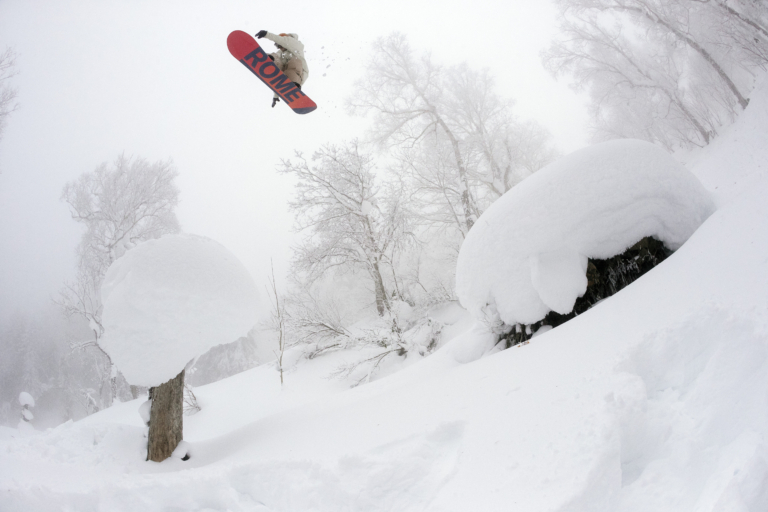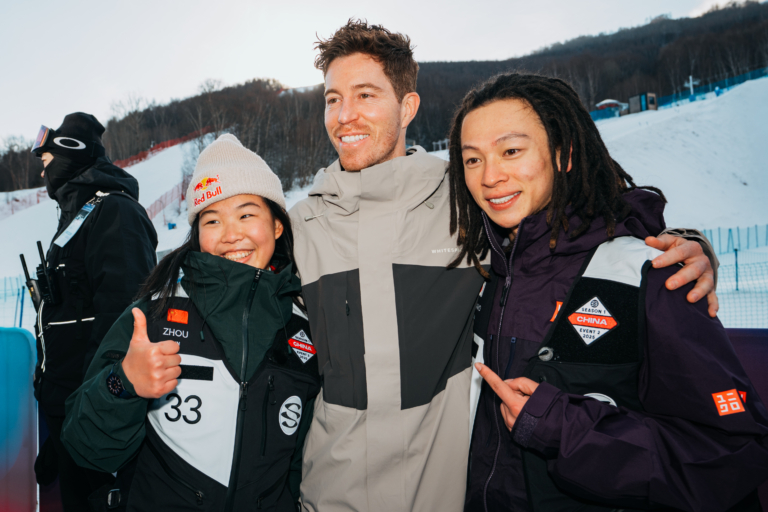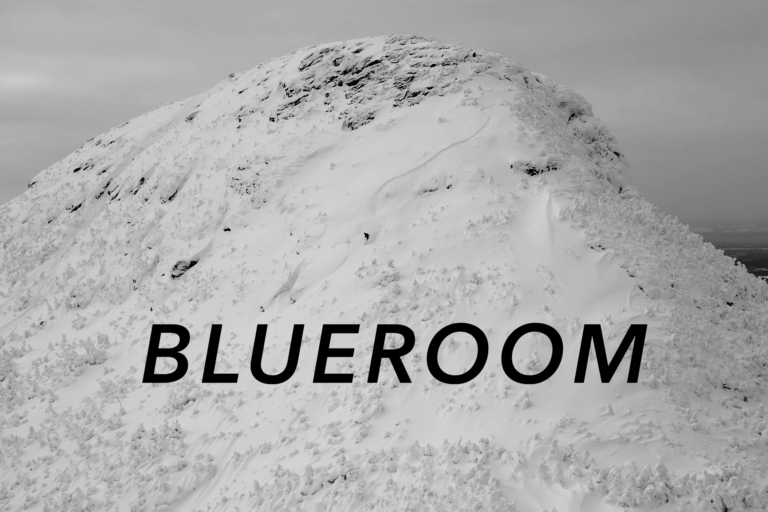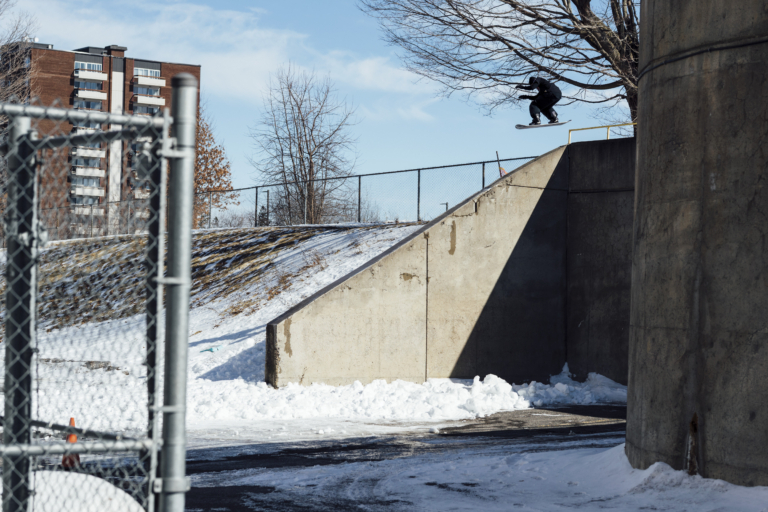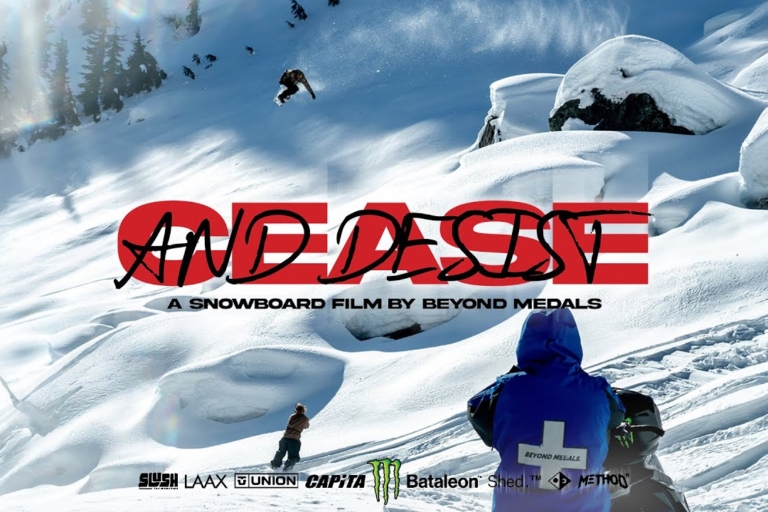[juicebox gallery_id=”76″]
Academy Award-nominated director, Lucy Walker’s latest documentary is about Kevin Pearce, “The Miracle Man.” The Crash Reel premieres on HBO tonight (Monday, July 15th) at 9PM ET / 8 PM CT and is a must-see. Be prepared for tears, as it’s a raw, honest documentation of Kevin’s recovery after sustaining a severe traumatic brain injury in Park City’s superpipe December 31st 2009. Not only is this a story about Kevin, but one of family. The Pearce family’s level of communication and love is something everyone can aspire to.

Senior Editor, Nate Deschenes, and I watched The Crash Reel at the Denver premiere last week. I saw it the night before, media screening style, hoping to get tears out of the way in the privacy of home, but it got me again, the second night. You see, I was working as the women’s team manager at Burton when Kevin’s injury happened. I had been lucky enough to travel with Kevin and all the riders to events and photo shoots all around the world. X Games 2009 especially stands out, as Kevin almost beat Shaun. I was watching the contest from the bottom of the pipe with Kevin’s family and shot photos of everyone with their signs for KP (see gallery).
The year Kevin sustained his injury was an intense year, as it was an Olympic qualifying season. The entire snowboarding community was affected. We didn’t know if Kevin was going to make it, or what life would be like for him when he did pull through. One year later, Sarah Burke passed away after a head injury in the same pipe. Needless to say it’s been intense for all of us and watching The Crash Reel stirred up heavy emotions. The soundtrack, including tracks from Lykke Li, José Gonzâlez and “Reckoning Song” by Asaf Avidan & The Mojos evoked emotions too.
Kevin, Pia and Dr. Weintraub took the stage for a Q&A after the documentary. Nate and I got to spend time with Kevin prior to the screening and had planned to sit down for an interview after, but this interview says it all. Besides, Kevin was busy being an inspiration to everyone who approached him after the screening and listened as they shared their own stories of hardship. It’s been incredible to see Kevin’s recovery. Kevin used to be an amazing snowboarder, now he’s an amazing man.
What’s the hardest part of this documentary?
Pia Pearce: The hardest part for me is watching the crash. Honestly, I cover my eyes and just don’t watch it anymore. What gets me through it though is knowing that is has a happy ending.
Kevin Pearce: The hardest part for me is watching what I put everyone through. Seeing my friends and family and how everyone rallied and how much they had to deal with was crazy.
Your process of growth is interesting given the nature of your injury…
KP: It took a long time to get to where I’m at and it’s really the weirdest thing because I look back and see where I was say a year ago, and how well I THOUGHT I was doing in my head at the time. I thought I was just fine. I look back on that and I see that I have made so much progress from a point that I thought I was fine. So my question to myself is, “How good am I really doing!?” The perspective outside looking in is definitely different than how I feel on the inside sometimes. Is everyone just telling me I’m doing well or am I REALLY doing well!?

Well, let’s ask Dr Wientraub.
Dr. Weintraub: Kevin is doing really well. What’s amazing about him is his resilience and his family’s support and how he is really facing his challenges honestly.
After a year you feel like you are ok and want to go snowboarding, what’s going through your head?
KP: That was one of the hardest things for me to deal with and still is really. In my head I feel totally capable and totally fine, like I have my old abilities but that is definitely not the case. Like if I go to the skatepark I just want to jump on my board and drop right in but I know now that the risk may be too high for me to just do something that in my head often feels right. I feel that I have gotten better at gaining this awareness but it has taken a long time.
Pia: It has been hard for us to see that such talents that Kevin had are no longer there and that he won’t achieve those dreams that he once had. But it’s something that has happened and having the doctors explain to us how the brain works and why Kevin is having such a hard time coming to grips with what has happened.
What’s next?
KP: I’m so lucky because I have a lot going on. Now that I can’t do the events I am announcing events like the X Games, which has been great. Also, I have been doing some public speaking trying to share this story and tell my story and hopefully give people some hope. Also, we started the Kevin Pearce fund for Traumatic Brain injured patients who don’t have insurance and need help through the long process of recovery. We made these T Shirts and my dad who is an amazing glass blower has made these bowls, the Love Your Brain Bowls, so to start with the proceeds from the shirts and the bowls will go directly to the fund. It is so cool to be able to give back after I received so much from the doctors and my friends and family because these are a lot of kids out there that are not as lucky as I am in that respect and don’t have the support system that I do.
Do you snowboard?
KP: Yeah a little bit but mainly in the powder and in the backcountry. I have learned after some trial and error what is just too risky for me to be doing. Because hitting my head again is simply not an option.
How was it getting back on your snowboard for the first time?
KP: It was great. It was fun. But it also was very humbling and it put me in my place. Leading up to that I though that I was fine and that I was so much more able. So it was good to get out there and ride but at the same time it was the only thing that would show me where I was really at with it. I mean, I remember being in the hospital after the injury and thinking that I might get out in time and be ready for the Olympics which were just weeks away, if that says anything about my judgment!

If they build it, they will jump it. What are your thoughts on that and/or restricting sizes for competition?
KP: I say no restrictions. The reason I love snowboarding so much is because there are no restrictions. In snowboarding you get to do whatever you want, there’s no wrong way to do it, there’s no coaches telling you to grab your board here or do this trick, you can do whatever you want. I think if kids want to push themselves then they should have the choice to do whatever they choose.
What about Shaun White?
KP: Shaun is a great kid and that is why we became so close. You have to be a certain way to be that good, and he is THAT good. He’s not dominating these events because he is acting like everybody else, he does things he wants to do and he is successful at it. I can’t talk bad about that because it is exactly where I wanted to be.
It is hard to watch Shaun because I put everything into it, everything. Knowing how close I was and now knowing how far I am from that is something I work on everyday and is something I am moving past in my life.
The Pearce family has great communication…
KP: (shouts) I got a pretty good mom!
Pia: We decided long ago that we needed to be really honest with one another. Through all of the difficulties I think we knew that the best way to move past them was to be as open and respectful as we could with one another.
How have you grown in understanding of what you can and can’t do?
KP: There has been a huge change. This was something that time has helped. But meeting some of these kids who have had a TBI only to go back out and get another, seeing the real damage that happens if you don’t appreciate that second chance you’ve been given opened my eyes as well. Getting back on my board and knowing my abilities has helped me understand where I REALLY am not where I THINK I am. All of these things have helped me be ok with where I am now, not trying to go back and get what I had them. My brain didn’t want to tell me that for a long time though.

Through your advocacy you educate and inspire, what’s your lesson?
KP: I think the biggest lesson I have learned is not to hit my head again!
I think the co-star of the movie is your brother David.
KP: He is so awesome. We have become so much closer because of this injury, which is very special. I have found parallels between each of our disabilities and I think we both have had to face the facts of our disabilities. We have to be ok with the things we can and the things we can’t do.
What is your last thought and you next thought after the injury?
KP: My last memory is at Jack’s 21st birthday, my next memory is on an airplane being transferred from Salt Lake City where I was the first 27 days of my injury to Denver where I spent the next 2-month.
How do you reconcile all of that time that you lost?
KP: Well, this film does a great job of showing me what went on!
The other thing about this film that was very valuable for me was seeing from the outside what I put my family through. I would have never known the real impact this had on them.
Every Olympian can be inspirational but what you are doing now is really so much more.
KP: I want to do something that fulfills what snowboarding did for me but at the same time I am realizing to just trust the process of where this is taking me. I’m not putting too much stress on myself and am seeing that just by doing what I’m doing amazing opportunities keep presenting themselves.
The Kevin Pearce Fund
#LoveYourBrain
www.kevinpearce.com
“Many, many words for Kevin, but hardly any to describe how I feel. His dedication and positivity has been the biggest thing. I remember seeing him in the hospital even before he could walk and he has zero doubt that he was going to get through it. He has always had the attitude that he was getting better. He never had the attitude that we should feel sorry for him but instead the attitude that we should be happy that he is still here. He’s kept going, going, going… And he’s getting better and better every time that I see him. It’s amazing.
“I think his attitude played such a huge role in him getting better. And in turn he’s taken on a bigger role as that of a role model to some other kids who have gone through similar injuries. His hard work and dedication to recovery is the most amazing thing I have ever seen. I think when you are recovering from any injury on of the main things is never to get down on the situation, Kevin Pearce taught me this. The only way to look at it is to take the stance of, I’m getting better every day. That’s so important in making steps towards recovery. It makes all the difference.” – Danny Davis
HBO’S THE CRASH REEL
HBO Documentary Films | https://www.hbo.com/documentaries/the-crash-reel/index.html
PREMIERE DATE | July 15, 2013
DIRECTOR | Lucy Walker
WRITERS | Pedro Kos, Lucy Walker
EXECUTIVE PRODUCERS | Dan Cogan, Geralyn Dreyfous, Sheila Nevins
PRODUCERS | Julian Cautherly, Lucy Walker
CINEMATOGRAPHER | Nick Higgins
RUNNING TIME | 100 minutes
SYNOPSIS | This eye-popping, yet intimate, story of U.S. champion snowboarder Kevin Pearce
uses years of vérité footage to expose the excitement and appeal—as well as the high stakes—of participating in extreme-action sports. Training to compete against longtime rival Shaun White at the 2010 Winter Olympics, Kevin suffered severe traumatic brain injury from a 2009 accident in Park City, Utah. His tight-knit Vermont family flew to his side, and together they began an intensive process of trying to rehabilitate him and help him rebuild his permanently damaged life.
Kevin’s determination and the tireless support of family and friends kept him focused on recovery. But when he insisted he wanted to return to the sport he loved, his family objected. As an elite athlete, Kevin was a professional risk taker, but as a brain-injury survivor, his skills were now impaired, and even a small blow to the head could kill him.
Academy Award–nominated director Lucy Walker’s latest film (Waste Land won the World Cinema Documentary Audience Award at the 2010 Sundance Film Festival) sheds light on the alarming trend of athletes pushing the boundaries of their sports past the limit. How much risk is too much? Her thoughtful and probing treatment of her subject enables us to share one family’s remarkable journey.

